Books are the gateway to a world of bountiful knowledge
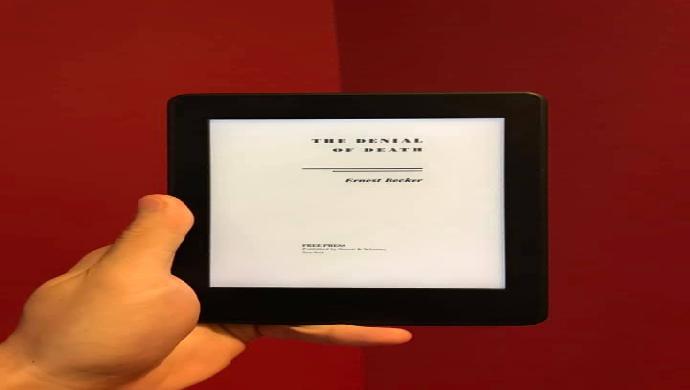
A year ago, I set a challenge for myself to read 50 books in 2018. That is a 10x jump from the average of 5 books I read per year. That bold step stemmed from the cognizance of how little I still knew of the world. At one point, I decided to start using my time seriously to make a meaningful mark in the world. But I knew I won’t be able to do that with the knowledge and mentality I had then. I knew there’s more to life and my potential that are fenced in somewhere. I need to unlock it.
It’s like driving with a broken GPS. You can continue driving faster only to get to the wrong destination sooner. So before I start racing, I decided to first upgrade my GPS. Before I embark on the bumpy transformational journey, I wanted to first equip myself with the right armour for the game called ‘life’. I figured there’s no better way to do that than absorbing the wisdom from people who have dedicated their life into the subjects and do it as many times as possible, from as many experts as possible to completely upgrade my mindset in a year.
Just two days before the end of 2018, I did it. I completed 50 books and diligently posted my takeaways for each book on social media.
Finishing the challenge made me feel badass, but the comments that came from the challenge were even more gratifying. There was a lot of kind encouragements, and many asked about book recommendations, what I’ve learned and tips to do the same. Because of that, I’m dedicating this post to all my friends out there, hoping that the lessons will spark meaningful ideas just they certainly have in my life.
I will break down the rest of the post to 3 sections: summary of lessons from the 50 books that I read, reflection on the impact of finishing the challenge and the strategy that I used to complete the challenge.
Lessons from 50 Books
This is a hard question to answer because I took away a lot of things from different aspects of life. Saying one thing will not do justice to the many things that I have learned. And that’s intended. I put a concerted effort to diversify the books that I read in this challenge. Almost all the books that I read previously were either on self-development or start-ups. In the spirit of widening my horizon, this time I consciously chose to stretch my area of interests to the realms of spirituality, economy, neurobiology and more.
So here goes my attempt to consolidate my learning into bite-sized lessons from the various subjects I dabbled in. For those who asked for book recommendations, I’ve also listed down the top books I drew the lessons from for each category.
Death
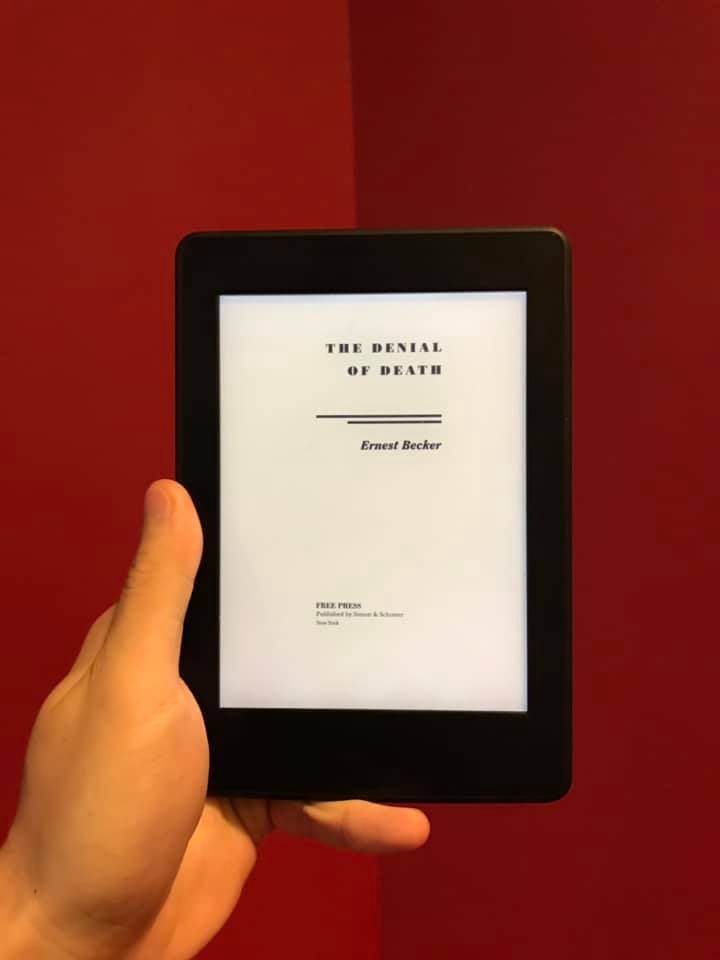
When Breath Becomes Air, The Tibetan Book of Living and Dying, The Denial of Death
I’ve come to feel more in touch with the notion of death. Not that I didn’t know or denied I will die one day, but death is just something that was too out of reach and out of touch to surface my conscious mind to make a profound daily presence. Immersing myself in the idea of death centres myself closer to what’s true. In the face of death, people redefine and connect with their authentic self. All the symbols and facades that have been veiling what is true inside of us will fall apart.
Humans have an intrinsic biological fear of death, just like any animals do. Over time, this terror of death evolves into a denial. The yearning to transcend death inevitable progressed into the symbolic system we live in today which serves as a vehicle for heroism. It’s designed for us to earn the feeling of cosmic meaning to our existence. Science, money, romance, goods are the products of our pursuit of externalism. They are man-made means created for us to escape from our terror of death.
All of the above do a good job of distracting us from our flaws and fragility. But the terror doesn’t disappear, they laid low in the back of our head, ready to make their appearance at moments of weakness and solitude. They will haunt us in the form of esteem issues and feeling of imperfection.
The only way to permanently deal with this is practising to look inward instead of constantly numbing our emotions with what we get outward. Looking inward is hard because it requires dealing with pain and insecurities and causes mayhem in the bubble which the society has perfectly constructed for us. That’s why many people, mostly to their ignorance, choose to stay in the external and live an effortless, meaningless existence.
At the moment of death, there are only two things that count: what we have done and the state of mind we are in. The constant practice of looking inward can free ourselves from suffering and self-grasping. It will allow us to assess the level of illusion which we live in in the face of the majesty of the universe. Over time, we’ll grasp that impermanence is the only thing we can hold on to. By letting go of self, we rise from the repression of death. We become fluid to fit ourselves creatively between limitations and possibilities.
Also Read: How apps help seniors with better mobility, safety, and quality of life
We can work in reverse and ask ourselves, what values, connections, and impact do we want to leave behind when death looms? Then align our everyday action with the end game that we strive towards. If we dared to face our demons, embrace our fears and flaws as they are, we will have a fair chance toward liberation and reconnection with our authentic selves. For those who practice and prepare, death will not appear as a defeat but triumph, a moment that marks the most glorious moment of life.
Mindset
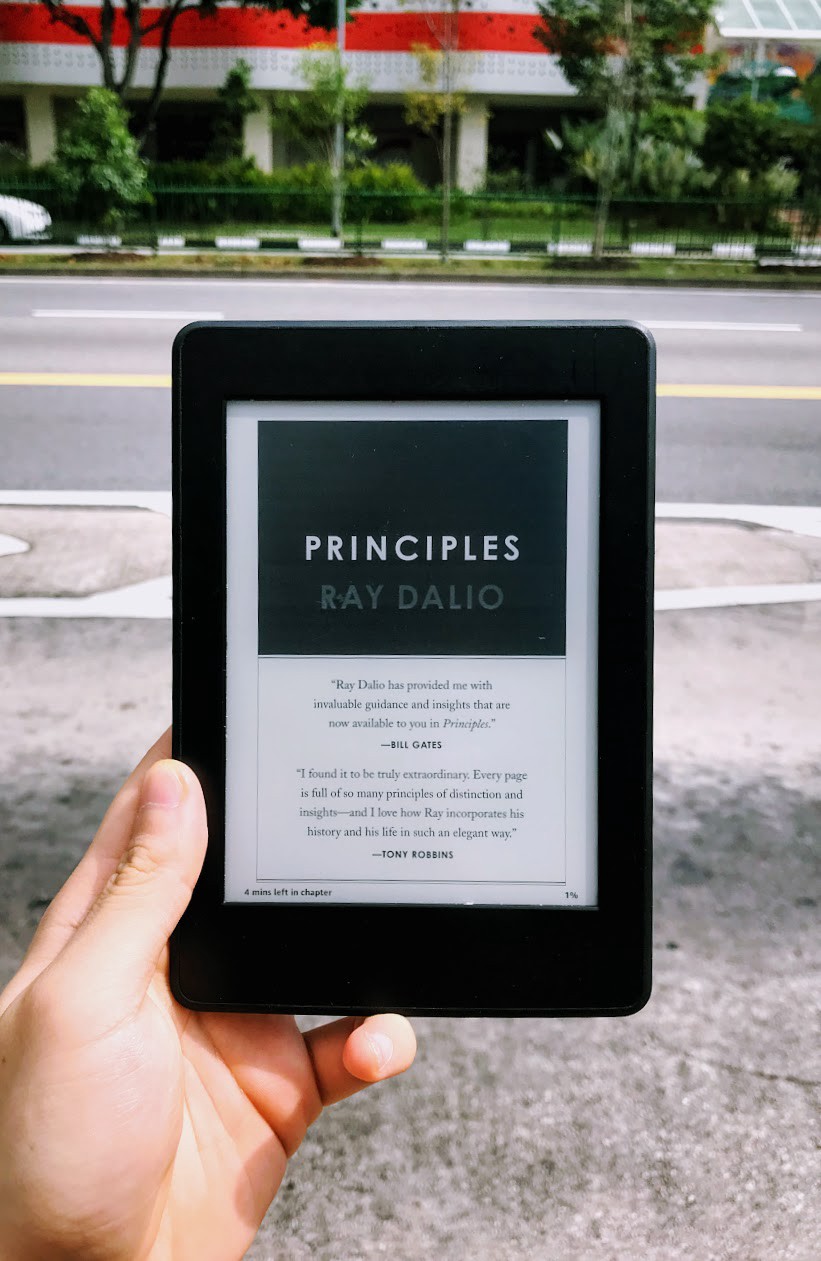
Principles, 7 Habits of Highly Effective People, Compound Effect, The Six Pillars of Self Esteem
Think and act from your higher self— that’s the overarching theme I observed in many of the books in this area. It is our natural instinct to react to the first thing that demands our attention. But with the amount of noise that exists today, it is our responsibility to guard what’s truly important to us. A lot of things may appear important but are actually transitory urgent matters in disguise.
Everything always looks bigger up close. What’s happening today always seems like a much bigger deal than it will appear in retrospect. That’s why we need to develop the skill to notice when we’re too drawn into the details and step out to see the bigger picture. When we find ourselves reacting to an urgent matter that repeats itself, resist the temptation to jump into it directly. Look deeper and take the time to diagnose the root cause.
Don’t procrastinate to face the truth because it’s uncomfortable. Create a system that will take care of the issue entirely so we can make time for what’s truly important. There is so much willpower that we have amidst the sea of distractions out there. We can sail through the storm by automating most of our decisions through a series of routine and systems. They will make sure we stay on course with our mission and prevent us from being acted upon by external conditions.
Powerful principles are created through a continuous reflection on meaningful experiences. Meaningful experiences are only attained by pushing our limit. By default, that involves going through pain. There’s no avoiding pain in growth, so embrace it. Develop the muscle reflex to seek after and reflect on pain rather than avoid it. Mental domination is what makes one unstoppable.
The formula is simple but not easy, show up, do the work, follow the principles, every single day. Do something we don’t want to do. Push past laziness and fear. Take full control of our body instead of letting it control us.
Many people underestimate the impact of small everyday decisions. They seem inconsequential at the start but give them time, they will compound into the life quality we get. Nobody intends to break up or become obese.
They result from a series of small poor choices. Inconsistency to our daily commitments bears a lot bigger cost that we thought. It’s not just the loss of tiny immediate result, but also the collapse of the momentum in our progress. Rather than starting and stopping repeatedly, it’s disproportionately more effective to take off once and maintain regular speed along the way.
It’s important to stick to our principles and have the courage to live with integrity, especially when nobody is looking. There’s a feedback loop between our actions and self-esteem. The more that we act consistently toward our values and goals, the more confidence we ingrain in our mind to achieve and become more. Soon, we’ll find joy from being who we are, not in being better than anyone else. We’ll stop proving our worth and start living our possibilities.
Neurobiology
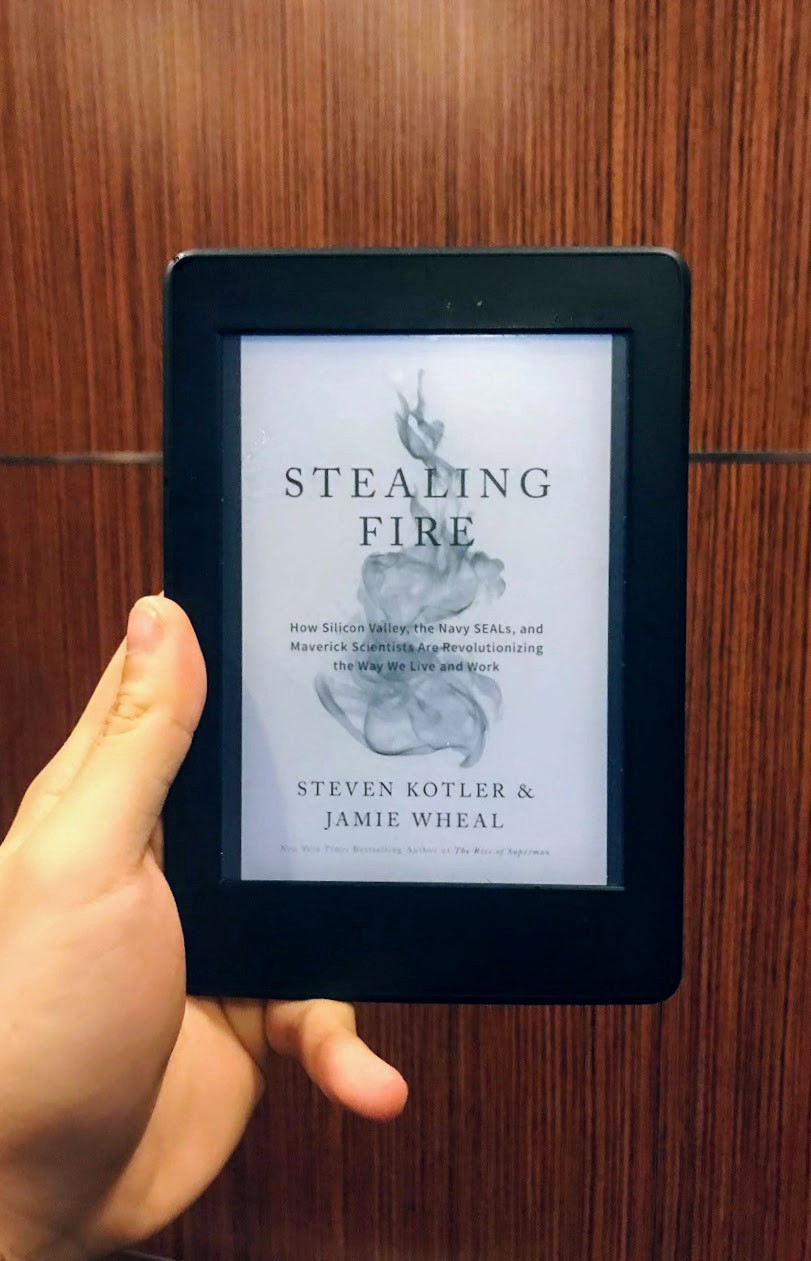
Stealing Fire, Head Strong, Bulletproof Diet, The Rise of Superman
Apart from moulding the right mindset, the vitality of our brain and body plays a big role in determining our life quality. Manifesting our big intention will require our energy and focus to be on top of their game. The good news is, we can have control over our neurobiological levers.
There’s no question that our diet is the foundation of good health. But what not everybody is conscious of is how what we choose to put in our body affects the quality of our days. A lot of the food out there today contains toxins that do our brain big harm. Eating just a little toxin food can trigger a widespread inflammatory response in our body that saps energy away from our brain. As much as possible, avoid the followings: sugar, milk, gluten, MSG, soy sauce, GMO food, alcohol, unsaturated fat or anything fried.
On the other hand, inducing strategic and temporary stress in our body can enhance our mitochondrial functions to fuel our brain with more energy. Mitochondria are the main bacteria in our body responsible for delivering energy and boosting our cognitive performance. Intense exercise, caloric, and oxygen restriction can trigger autophagy — a biological process in which our body repairs or kill dysfunctional mitochondria so we can generate stronger ones that perform better in stressful situations. Additionally, beware of lights. Junk lights like white LED and blue lights from our screens stress our mitochondria. Get natural light or use halogen bulbs as much as possible.
Also Read: For food delivery, machines won’t replace humans any time soon
A layer above the foundation of good energy is Altered State, or as most people refer to as Flow. When we get into a flow state, there’s no more space for our brain to oscillate between the past and future. We’re plunged into the “deep now” where we experience an expansion of self, a prolonged present, and creative breakthroughs. Getting into the zone means giving our slow and limited conscious mind a break and letting our expansive and intuitive subconscious take over.
One of the ingredients to enter Flow is a high-risk environment. It typically has a combination of novelty, unpredictability, and complexity. By that nature, entering Flow requires going through a period of struggle. The mental struggle and physical exhaustion will get worse to a critical point when it suddenly blends in the background and we immerse into the zone. So when facing an insurmountable mental struggle, hang tight a little longer. That could just be a sign that we’re about to enter Flow.
The knowledge in this area gave me a big sense of autonomy over how I want to feel every day. My mindset has shifted from succumbing to “ugh, another off day” to an inquisitive, proactive “what did I eat, what tools can I use to enter Flow”. Instead of treating my mind like an OS, I see it as a UI, with different apps and tools I can deploy to access altered states. Train the mind to see what is really happening so we can liberate ourselves from the limitations of our psychology and take advantage of the levers of our neurobiology.
Cognition
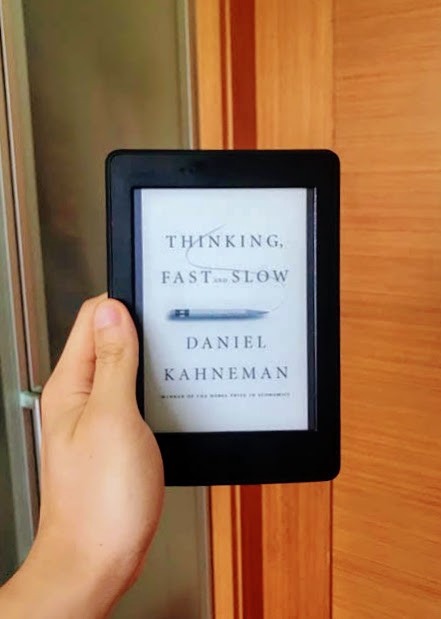
Thinking Fast and slow, Everybody lies, Nudge, Fluent Forever
Our intuition is a lot more unreliable than we think. “Trust your heart” they say. But our heart only has access to the information stored in our head. That’s what intuition really is, a shortcut to our collective memories. Because our decision making power is limited to what we know, our knowledge pool is not a reliable source for making high-stakes decisions. Worse, our mind is heavily bias-prone. Many of our decisions are influenced by subconscious priming from events around us instead of coming authentically from us. It’s not natural but in a lot of situations, we need to train our mind to not immediately follow our instinct and look for the evidence instead.
Having said that, even evidence can mislead when translated wrongly. Don’t mistake correlation with causation. Things are not linear, we need to be cognizant of the many variables involved. Saying people who drink a moderate amount of alcohol have better health is most likely a correlation, not causation. But it could be reverse causation — maybe having good health causes people to drink more moderately. It could also be omitted variable bias —maybe spending more time with friends is what leads to both moderate alcohol consumption and good health. Facts don’t necessarily tell the truth, always question the vehicles that lead to the conclusion.
Humans are susceptible to all sorts of slip-ups in making important decisions. Ironically, the more important a decision is usually the rarer it occurs hence we have the least practice to make the right choice. In that sense, people don’t always know what’s best for themselves and as a result, often don’t make choices that are in their best interests. That is when people who have developed the expertise in the important areas need to step in and nudge the rest into making better decisions while upholding people’s free will.
On the other hand, there are various ways we can intentionally engage our brain to remember things. Our brain forgets because the things we want to remember only engage a few neurons in our head. Neurons that wire together, fire together. So to remember something, deliberately form a connection with the object. Engage various parts of our brain through images, sound, and personal memories. Make it meaningful. Have a dirty mind even — our brain is good at remembering visuals that are violent, sexual, funny or combination of the three.
Starting up
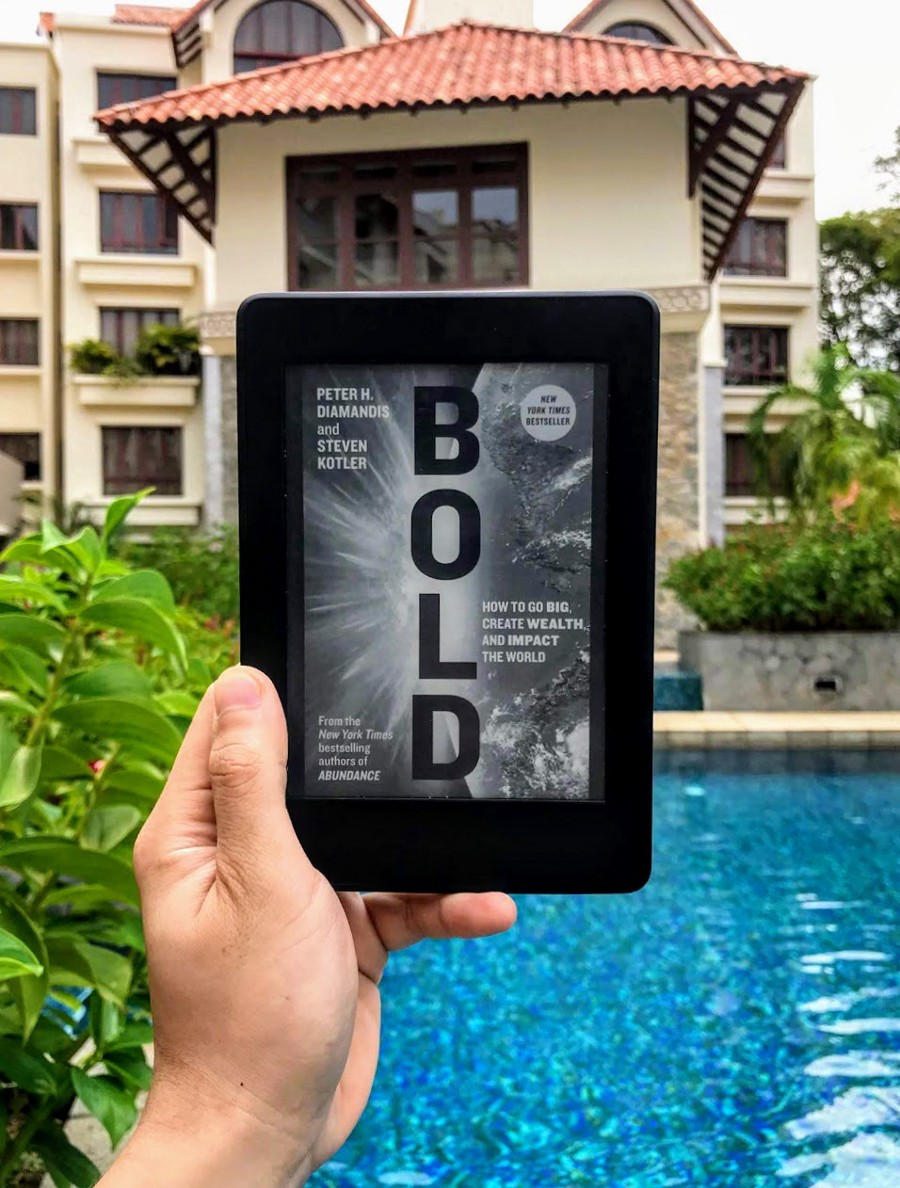
Creativity Inc, Business Mastery, Where Good Ideas Come From, Bold
When thinking of starting up a meaningful project, choose something with mission and vision that is bigger than ourselves. That’s the only thing that will keep us at dark nights when it feels like nothing is working. Resources are never the problems, it’s the question of resourcefulness. Our emotions are our ultimate resource so that’s why it’s critical to have a compelling vision and purpose that serve more than ourselves.
The question is, how do you come up with such a compelling bold idea? Epiphany doesn’t happen with a few neurons firing. The trick is not to sit still and think big thoughts all day. Go out, experience and learn more instead. Make our neural network densely populated to allow many neurons to wire and fire together.
This is what Steve Jobs meant by connecting the dots. A lot of the great innovations out there didn’t begin with a concrete idea from the get-go. They all started from a hunch. An idea is parked at the back of our head, and as we feed our brain with more inputs, at one point all the memories will be released and put into motion to mould into something intricate. The sweet spot between the known and unknown is where originality happens. The key is to be able to hang in there without panicking.
Strong vision follows strong execution and strategic innovation is key in its process. Instead of constantly living in reaction, make the time to notice the opportunities around for making strategic shifts. The reward of executing and thinking differently can be disproportionate. Thinking big like 10x also creates
Flow because Flow follows focus and big risks catch our attention. We no longer have to put the effort to concentrate, flow does the job for us.
Starting anything bold, by nature also means that it will involve many failures so it’s critical to master risk management. Outstanding entrepreneurs are not only good at risk-taking but also risk-mitigating. Uncertainty is part of life’s beauty. Things will constantly change and problems will always come. Acknowledge and embrace uncertainty so we can respond constructively when the surprise comes and most importantly, enjoy the ride.
World
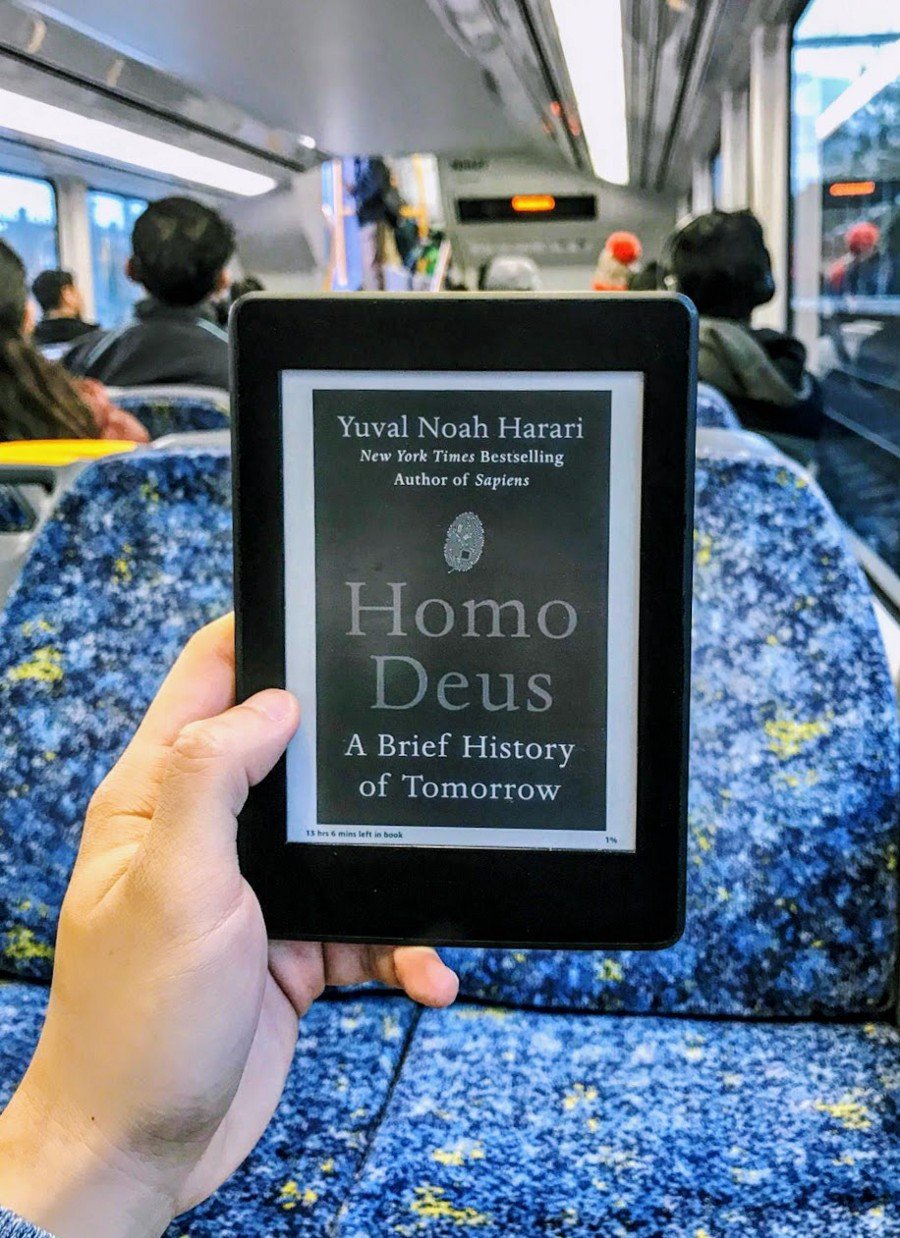
Homo Deus, Why Nations Fail, Guns Germ and Steel, 21 Lessons for The 21st Century, AI Superpower, Doing Good Better
Luck plays a big role in determining the present state of any given country. Those who happened to have access to the prerequisites for food production and inherited a location that allows for ideas to proliferate are mainly the ones who flourish. Five of the richest country in Africa for example, are those located near the river.
European societies were the particular ones who rose to the top of social rank for the same reason. Not denying the array of variables, the one that stirred it all was surprisingly geography. The attributes of their land allowed for the early development of agriculture. As more men were freed from having to hunt, social institutions arose. More food fed more people which allowed for more armies, organization, and inventions. Many first lethal diseases also germinated from domesticated animals. So through years of evolution, Europeans developed substantial resistance to new illness. Diseases have caused more deaths than all wars combined and they became the most effective weapon for Europeans to win wars when they spread it as they were colonizing the native inhabitants.
After independence, the one that set the trajectory for many of the failed nations today is the corrupt elected leaders. They constructed a negative spiral with economic and political institutions that allow narrow elites to extract wealth for their own benefit at the expense of the people in their country. They make a deliberate attempt to impoverish the country. Innovations are curbed and media is silenced in fear of the threat to their power. In order to break the mold, it requires an extraordinary force from a coalition of diverse groups, rather than just a narrow group seeking power who would just replace the existing despot with another.
On the bigger picture and global level, the world is healthier, more prosperous and peaceful than ever. Starvation, plagues, and violence which were the most deadly problems centuries ago are now non-existent in most countries. More people have died from eating too much than too little today.
The three main threats to humankind are now more global and connected: nuclear war, climate change, and technological disruption. At the time where all our actions are interconnected, the greatest crime is no longer just from hatred and greed but even more so from ignorance. In contrary to the rising appeal in regressive nationalists, more than ever we need global cooperation and mindset to solve global problems affecting the entire humanity.
Also Read: How to logically decide when it’s time to pivot
On the side note, I came to learn about how privileged I am. Because of the bubble I live in, I tend to benchmark my life with the millionaires and billionaires portrayed in the media. Little did I know that earning above $52K per year already puts me in the 1% top earners in the entire world. We who live in developed countries are comparatively so rich that the same amount of dollar that benefits us can bring 100x more benefits to many millions of people out there.
With the multitude of impact we can make, in the most human sense, it is only logical that we give back. However, due to our limited resources, our investment needs to be channelled toward causes that improve the most lifespan and quality of life. We shouldn’t get easily drawn to evocative and widely publicized issues. Base our choice off of the scale of the severity instead. GiveWell.org is a good place to scout for such causes to stretch the most impact of the dollar we donate.
Moving to the future, computer algorithms will soon be able to understand us better than we do ourselves. We will rely more and more on them to make many important decisions. Today, a lot of what we understand of the world is oversimplified due to the limitations of the human mind, not the limitation of science. Computers will be able to make complex sense of big data and thus uncover many advancements that we can’t fathom today, hopefully to the benefits of humanity.
The real threat of AI is undisputed inequality. At one point, the majority of the jobs we have will be automated and it will cause widespread social disorder. Most of us attach our identity to our work so when it’s taken away from people, many will find their life purpose threatened. So transitioning to the age of AI, it becomes more crucial for us to break free from the mindset that equates our economic value with our worth as a person. For all AI’s astounding capabilities, the one thing that we need most and only humans can provide is love. It’s far simpler yet more profound than anything AI can ever produce. If we leverage AI’s superintelligence and couple that with humans’ ability to love, we will have a shot at a future filled with economic prosperity and spiritual flourishing.
Spirituality

The Untethered Soul, Beyond Religion, Train Your Mind Change Your Brain, The Surrender Experiment
To me, spirituality is about transcending our earthly self. It’s a state of inner peace and connection to something grander and more cosmic than the fragile self. In that state, we are no longer bound to our conditioning and fight-or-flight instincts. We are free to act from a high level of consciousness.
Being aware of the fog that exists in our head is the first step to rising up in consciousness. We are not our thoughts and emotions. We are simply the observer. Detaching our consciousness from the voice in our head can liberate ourselves from the entrenchment in physical limitations. Because what we experience is a model of reality, we are in control of how the externals translate into our inner experience. We can experience a tremendous space and expansiveness inside us without relying on external conditions.
Mental training like meditation can get us to that state and rewire our emotional circuits to elevate our happiness baseline. Unlike external sources that bring us joy that is only fleeting, disciplined mental exercise can create an enduring physical change in the circuitry of our brain to elicit sustained positive emotions. That’s how we can escape the unending chase for materials and forever alter our sense of well being.
Focusing on ourselves often leads to suffering. Acts of compassion, on the other hand, give us a deep sense of genuine bliss. Universal compassion lies in the simple awareness that every conscious being aspires for happiness and avoids suffering just like us. It’s usually not the first thing that comes to our head, especially when we run into jerks. That’s why it requires practice and discipline. It requires developing a high degree of sensitivity to our energy flow. When we start noticing negative emotion stirring up inside, choose to let our consciousness get drawn into it. Simply be aware of it. Don’t fight it, just observe without judgment, relax and let it fall behind.
Since our true self is so fluid, we shouldn’t be fixated on our desires and wants. Let go of ourselves and open ourselves up to possibilities. It means not forcing things to go our way. Surrender to the flow of life instead. It doesn’t mean to be lazy. It means to serve whatever force unfolding in front of us with all our heart and soul. Life can surprise us in a magical way if we allow ourselves to open fully it.
The outcomes of finishing #50BooksAYear
Reading 50 books from many branches of life has indeed widened my horizon. Obviously reading 50 books is barely enough to turn me into the next Socrates. Knowing these lessons is one thing, but another to apply them or even surface them to your conscious mind every day. Having said that, I definitely notice the subtle shift in my outlook on life. More than ever, I feel a lot more connected to the world, in both intellectual and spiritual level. I understand better about how the world and mind operate. I learn to look at the bigger picture of things. I’ve become more in tunes with what seemed abstract emotions and concepts. There are just a lot more nuances in life that I started peeling and paying attention to. It felt like I’ve peeked into the Narnia door left ajar all this while.
The other noticeable impact from this challenge is the elevated confidence in myself. Obviously completing this challenge is anything but easy. But it’s the fact that I could accomplish what’s not easy that has done so much good to my self-esteem. It’s like telling my stubborn inner voice, “hey if I could accomplish this, I could also accomplish other bigger things in life”.
Also Read: How to turn your Instagram into a money-making machine quickly
In that sense, this lesson doesn’t necessarily apply to just reading. Give yourself any challenges. Something that is outside your comfort but still attainable if you put your mind to it. Start with something small and make sure to finish it to taste the subtle but palpable confidence boost in yourself. Slowly, what seems hard will become the new normal and the sky will be your ceiling.
Beyond myself, I am humbled and touched by all the messages that I received from my friends during this challenge. Many have reached out to me saying that they benefitted from the takeaways. More surprisingly many have said that they were inspired to do the same and a lot of them have started their own reading challenge. Seeing a change in me is definitely good but the feeling of inspiring change in people, especially those close to you is even more profound.
How did I accomplish it?
For those who are embarking on your own reading challenge, here are some tips from what I found useful.
The short answer
Make time. We all have 24 hours a day. If you deduct 7 hours of sleep, 9 hours of working time, 2 hours for logistics, we still have 6 hours to spare. It’s all about allocating and protecting the time. Instead of using willpower to decide to read, turn reading into a habit instead. Block time on your daily schedule and dedicate it to read no matter what. I rigorously followed my routine to read almost every morning and evening. Because it’s ingrained in my subconscious, there’s no need for me to decide, I simply followed the cues and as a result, read a lot I did.
The long answer
Fixing a time to read will already up your chance of success by 80%. However, I also can’t discredit the following factors that have played a pretty significant part along the way.
First, make use of public accountability. Unlike what other people think, I’m actually pretty bad at holding myself accountable. If nobody’s watching, I can easily get swayed and throw in the towel early when things get tough. So I leveraged social media. Remember, high-risk environment gets you in Flow. Announcing my commitments and updating my progress on social media induced a high social risk. For each book I finished, I posted my takeaways online. As more friends saw them and acknowledged this routine, there’s just no turning back for me. I needed to uphold my self-esteem and identity by honoring my words to finish what I promised.
Another important element is tracking. Without consciously knowing where we are in the process, there will be little motivation and urgency to progress. From the time I declared this challenge, I did a consistent weekly and monthly review of my reading progress. I tracked my pacing. Literally calculating how many books I have read, and how many days on average I can take left to finish each of the remaining books.
To be honest, I wasn’t great at this, I was behind my pace since the second quarter and I rushed through 6 books in the last week of December. However, it certainly helped with my confidence by making what seemed lofty and far feel attainable. Instead of seeing the many books left I need to finish until the end of the year, I aim for the one to two books I need to finish for the week. Plus the healthy pressure works like a divine church bell in my head every time I wanted to procrastinate. My inner voice will shout “YOU’RE BEHIND” and the next thing I know, I will have my Kindle sitting on my hands.
Speaking of Kindle, it is absolutely a god-sent for any avid readers. It makes a lot of difference in convenience. When you’re working on a challenging goal, a small resistance and mental excuse are enough to tumble your progress. With Kindle, I can read anytime on the go, especially in the dark and during travels.
The transition between one book to the other also can’t be any more seamless. I don’t have to make any trip to a bookstore. I purchased my e-books from Amazon and they’re instantly transferred to my Kindle. Once I’m done with a book, there is zero transition time for me to hop onto the next one. The last thing I like about Kindle is highlights. For those who think I have super memory when I summarized the books, I don’t. I highlight important ideas while reading on my Kindle, and when I’m done I can view all the highlights in one place and drew the summary from there.
Speed-reading helps. I took lessons to speed-read and it allows me to read three to four words at a time instead of word by word. That means I can read the same amount of content with three times the speed. Of course, I need to balance speed with retention. That’s where reviewing my Kindle’s highlights come in and for more complex reads, I’d take my time.
Also, don’t be afraid to skip some content in your book. Don’t assume that all authors are good at expressing their ideas or all details of the ideas add value to you. Don’t feel obliged to read page by page from start to end of the book. I played by ears. If the book was getting too deep into the details, I moved on to the next chapter. If you’re not reading to become an expert in the field, the big concept and examples of the subject are mostly good enough to draw good wisdom from.
On deciding what to read next, it’s a mixture of both free-flowing and being conscious of the type of books I read. As mentioned, I tried to diversify the content to broaden my views. So if I feel that I’ve read a little too much in a particular area, I’ll mindfully pick a book from a different one. Most often, a book will also have reference to other books on the same topic. So on the flip side, when I felt that I wanted to dig deeper into a subject, I would look into the books referred. I’m also fortunate to be surrounded by friends who are invested in developing themselves. So often when I talked about my challenge or when they saw my book summary, they will recommend a good selection of books to me.
In essence, make time, have an accountability system, remove as much friction as possible and don’t forget to enjoy the process.
What’s next?
Many asked if I’d do the challenge again or even, jokingly, double the number of books I read. For this year, I actually decided to read less.
The habit of vigorous reading will definitely stick with me for a long time if not for forever. But now that I’ve touched the surface of various subjects, I’d like to delve deeper into a few selected topics. While learning is definitely important, I also want to make time to actually doing. I’ll probably still do one book a month but use the spare time to work on other goals in my life.
I learned that knowing something doesn’t necessarily mean that it will translate to anything. Understanding the meaning of death doesn’t mean I’m ready to throw everything away today, crush all my insecurities and become a monk in Tibet. And that’s okay. While I definitely strive to integrate the learnings in my system, I accept that some lessons will stay as a hunch. When the time is right, as I experience more in life, I’m sure the dots will connect and manifest into something profound.
I certainly will carry the momentum and leverage my expanded inner confidence from this challenge to stretch myself further. I don’t know where exactly life will take me or what my next challenge will be. But one thing is certain, I will never stop growing.
—
This post first appeared on Medium.
e27 publishes relevant guest contributions from the community. Share your honest opinions and expert knowledge by submitting your content here.
The post What I learned from reading 50 books in a year appeared first on e27.
Source: E27

